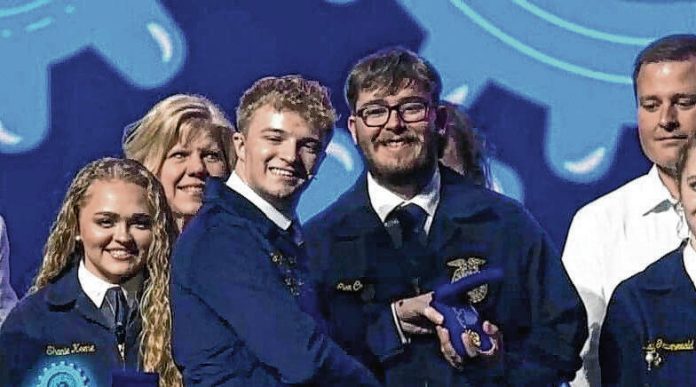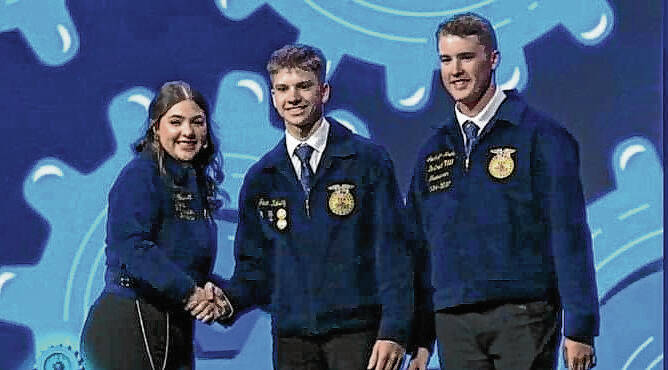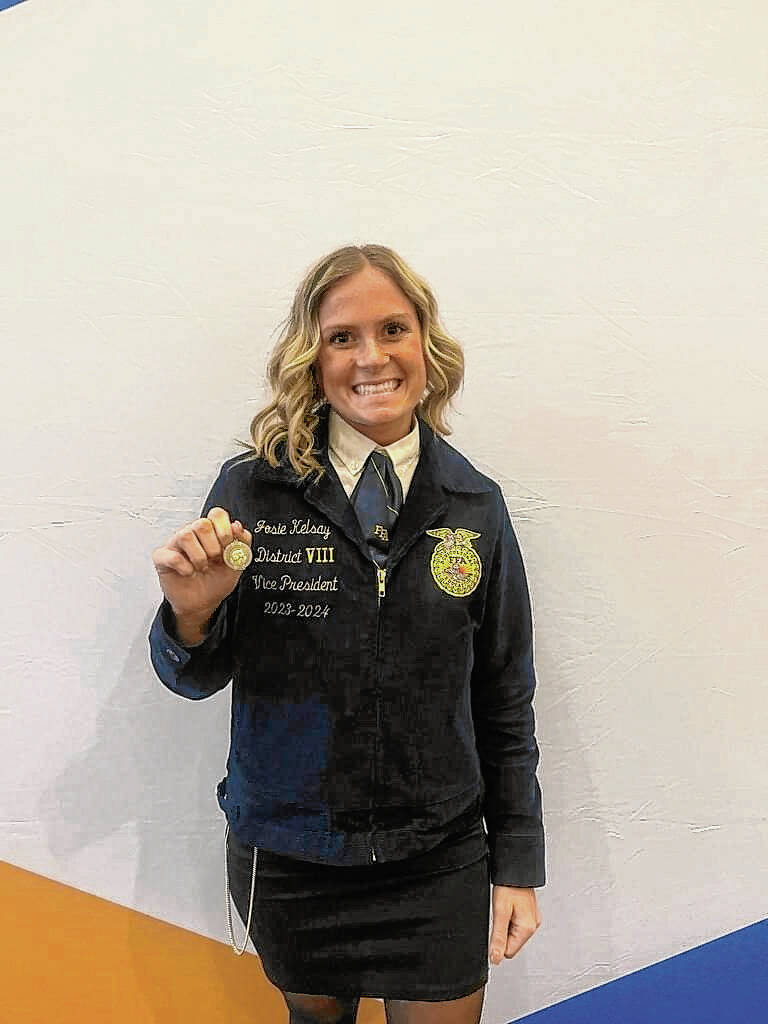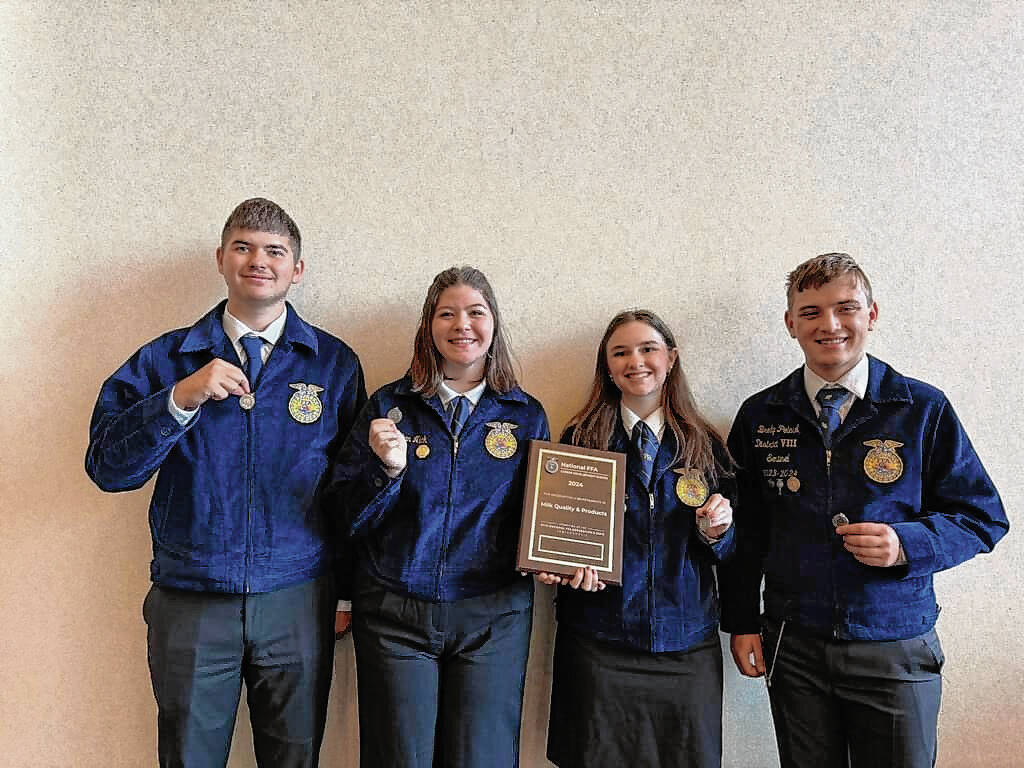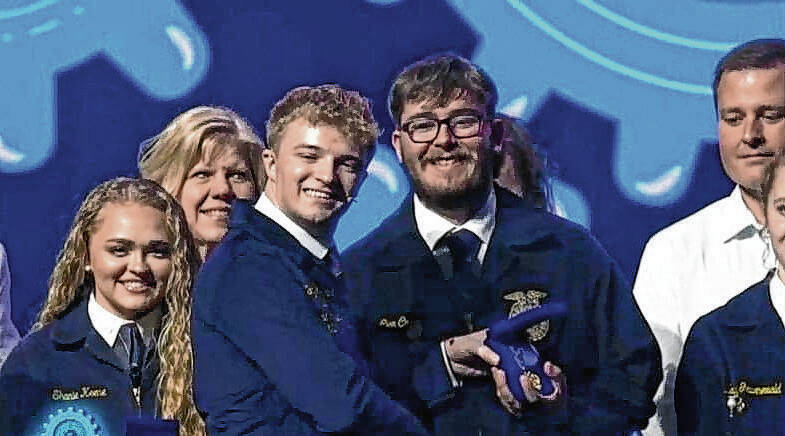For the sixth year in a row, Whiteland FFA was named a National 3-star FFA Chapter, one of the highest honors an FFA Chapter can earn.
The chapter earned this distinction and several students earned individual and team honors at the 97th annual FFA Convention in Indianapolis last weekend.
Four students won agricultural proficiency awards at the state competition in July, allowing them to move on to the national competition. Josie Kelsay won outdoor recreation proficiency, Brody Polesel won diversified livestock production, Cian Cribbs won agricultural education and Sydney Pryor won veterinary science. Agricultural Proficiency Awards honor FFA members who have excelled through their Supervised Agricultural Experience, or SAE, programs and developed specialized skills that can be applied to their future careers.
At the national competition over the weekend, Cribbs was named a Top 4 National FFA finalist in the agricultural education proficiency program. The Milk Quality & Products Team of Brody Polesel, Leorah Morris, Lillian Nick and Garrett Rice earned a Silver Ranking in the National contest. Josie Kelsay was also awarded a Silver Ranking in the FFA Dairy Handler Contest.
Competition means a lot to advisor Hannah Goeb, but watching students learn communication and professional development skills means a lot more, she said. Students who participate in FFA are better prepared for the workforce because they develop communication and public speaking skills, as well as a general knowledge of agriculture.
Each student had to complete a portfolio-type application highlighting their hours worked and skills acquired through their SAE programs. The award is a culmination of years of hard work and hands-on experience. Winning an agricultural proficiency award isn’t something a student can study or prepare for in advance.
For Cribbs, that was two years of experience teaching special needs students about agriculture. It started with 20 to 30-minute presentations about agriculture every two weeks his junior year. During his senior year, he became a teaching assistant and had a free period during which he could continue educating students.
The 20-minute lessons turned into an hour block where students completed assignments, listened to presentations, asked questions and talked about all things ag. It was always Cribbs’s favorite part of the day, he said.
Cribbs didn’t grow up on a farm or have direct access to animals, but his friends did. He joked that he owes a lot of people a lot of money for borrowing their animals to use during class. Cribbs would bring in chickens, goats, bunnies and whatever else he could get access to. His senior year, he also started an aquaponics system and brought students to the greenhouse for them to see flowers, tomatoes and fish that were a part of the system.
The response from students helped him prosper, which in turn, helped the students be more engaged. Cribbs encouraged one student who was interested in trucks and driving to explore companies that needed semi-drivers as a potential future career.
Cribbs was in Pittsburg with his family when the news was announced that he was a finalist. He got a text from his advisor, starfished out of bed and yelled so loud that he got a noise complaint the next day. Winning felt like a wake-up call for him and a confirmation that he was working hard.
Through his SAE, Cribbs learned that he was good at educating and plans to pick up a double major in educational disabilities and learning behaviors next school year. He was inspired by his SAE and his teachers who pushed him to do ag education his junior year.
“I don’t think I’d be the same person if it wasn’t for these experiences,” Cribbs said.


